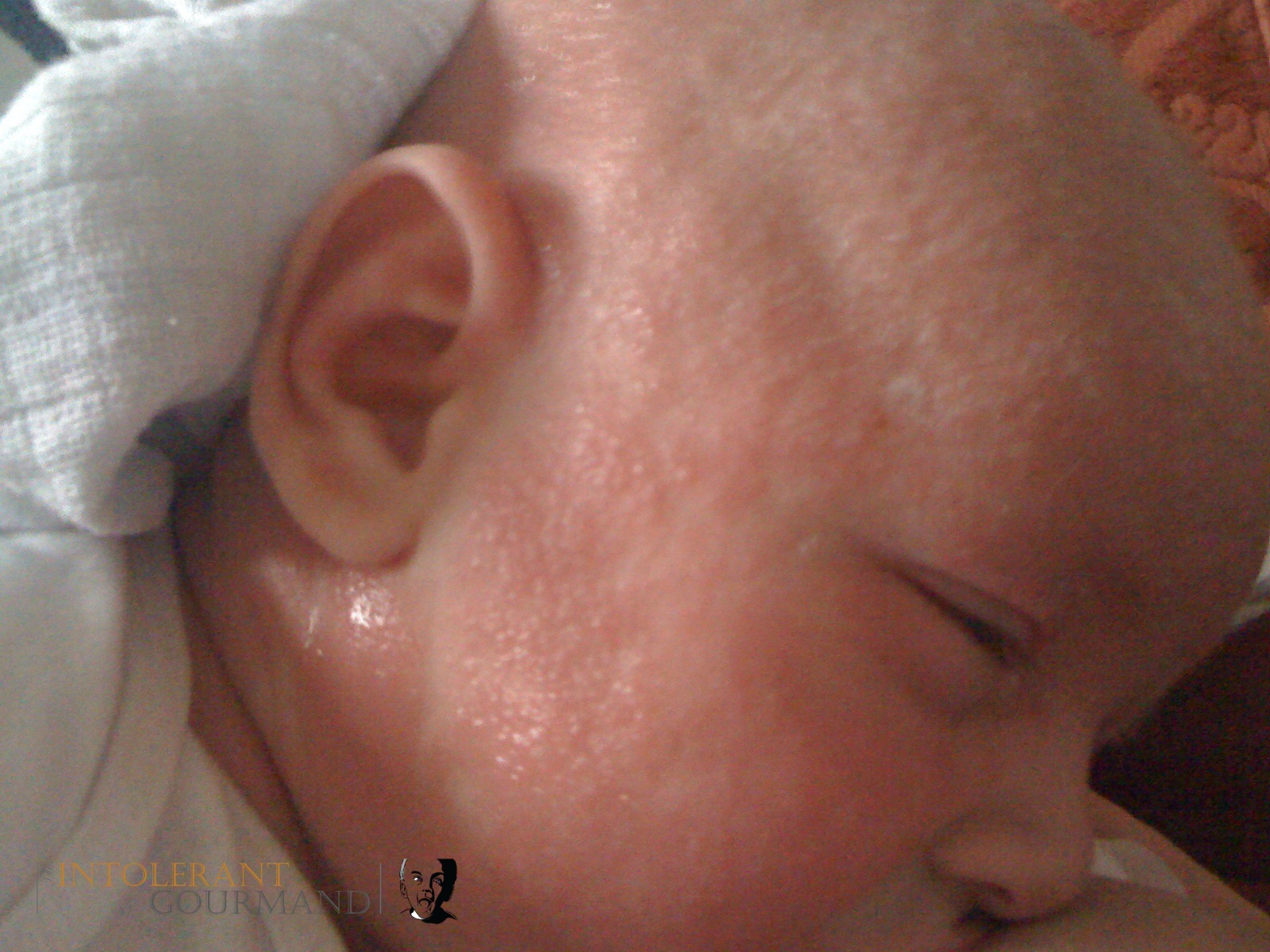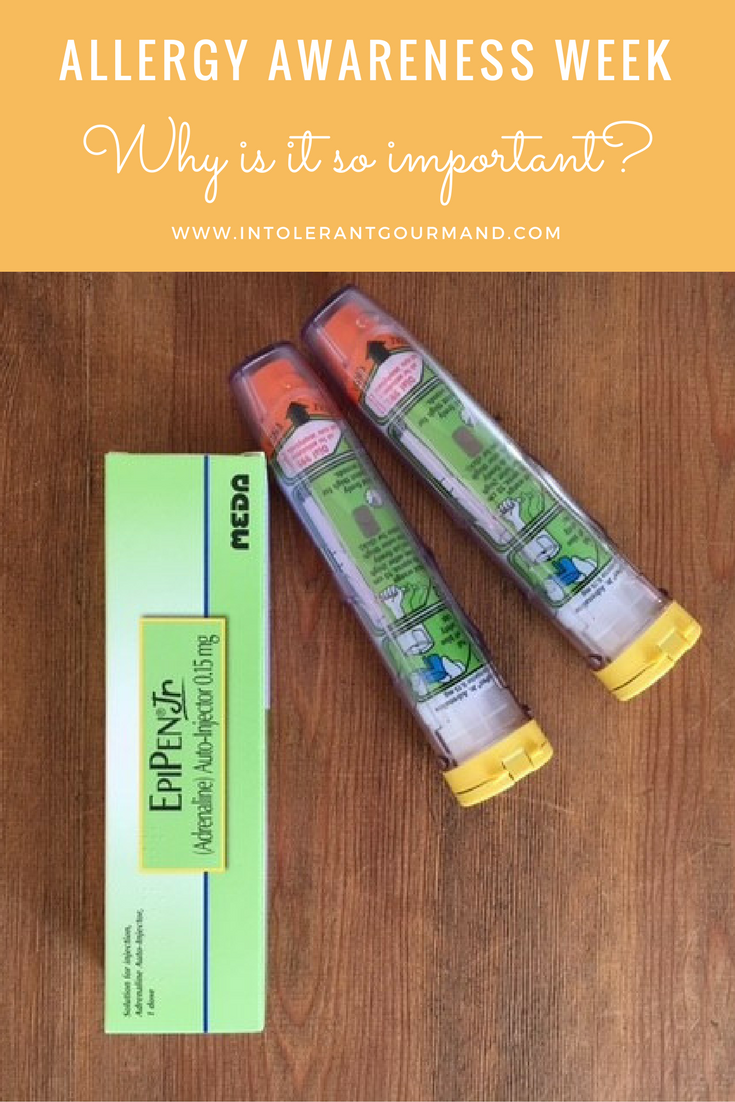Why is allergy awareness so very important, and what can we do to ensure allergies get the recognition they deserve?

A couple of weeks ago, we were focusing on Allergy Awareness Week, and last week was Food Allergy Awareness Week. It’s a time to educate others on the realities of allergies, the impact they have on daily life, and what we need to do to keep allergy sufferers safe.
(we originally wrote this piece for Foods Matter)
Sadly the press doesn’t seem to have picked up on it as much as with previous years, and we can only hope this isn’t a sign of things to come.
Raising awareness of allergies, and the dangers faced by allergy sufferers on a day to day basis is so very important. We were reminded of this after the awful news of an 18 year old boy sadly losing his life to a severe anaphylactic reaction earlier this month whilst out celebrating is birthday in London. A seemingly innocent grilled chicken caused a catastrophic allergic response which he was unable to recover from. He sadly passed away, with his girlfriend by his side after attempts were made to help him as much as possible. It later transpired that he hadn’t taken his epi-pens with him.
The realities of allergies
I can say hand on heart, this is the fear that every single allergy parent lives with on a daily basis. We may show that we’re ok, smiling on the outside, and living ‘as normal’, but reality is that we are permanently on alert, constantly watching out for possible issues, and pre-empting where able to.
Now, regular readers will know that my little boy Callum suffers with multiple severe life threatening allergies, and he has to carry his medication with him wherever he goes. This means that we can’t leave the house without his trusty medi-kit, which contains inhalers, epi pens, antihistamines, creams and more.
On top of this, we have to give regular medication on a daily basis to help Callum to be as comfortable as possible, namely his inhalers, antihistamine, emollient creams and steroid creams. It’s particularly important at the moment due to high pollen levels which make him even more susceptible to an allergic response.
Callum is not alone, it’s believed that around 50% of children now suffer with an allergy. Sadly, in spite of this, it is not always easy to get a diagnosis. And more and more adults are becoming aware of allergies and intolerances and beginning to question the symptoms they suffer with. The number of patients attending A&E with an acute reaction is increasing year on year and this is set to continue for the foreseeable.
When it comes to children, healthcare professionals don’t always know or perhaps even understand fully what they are being presented with. More often than not, in very young children it is assumed that it is colic, reflux, or ‘just baby eczema’. There is no real solution provided, and the situation sadly often gets out of hand, resulting more often than not, in an acute situation.
This was certainly the case for us. From the age of just 6 weeks old, we started the very long and hard journey of allergies with Callum. We spent months trying to get a diagnosis, with repeated trips to the GPs, to A&E and also emergency admittances, in our quest to get Callum better.
It was a harrowing, difficult, and emotionally breaking time which we wouldn’t wish on anyone! The fight we had to get a diagnosis was something that simply shouldn’t have happened. It caused a lot of stress for the whole family, and meant Callum was in extreme discomfort all the time.
Diagnosing allergies isn't as clear cut as it seems
I’m not trying to have a go at the Healthcare professionals. I personally think that they do a wonderful job, with the tools they have been given. For them, it’s about supporting them further, and giving them more education so they can be taught how to recognise the classic symptoms, and the not so classic ones too! Because let’s be honest, patients will present differently, and it can often be difficult to determine exactly what the cause of some symptoms are. And with just 10 minutes per patient, GP’s have a tough time trying to get the information they need to make an informed decision. If just one bit of vital information isn’t shared, it will be almost impossible for them to reach an accurate diagnosis.
The important bit is to remember it’s about making them understand what it is like to live with allergies on a daily basis, the pretty much living nightmare which is on constant loop, and the fear as a parent of not knowing what the hell is wrong with your clearly very sick child, and to provide them with a viable solution that will help their patients.
It's also the case when eating out. Getting the restaurants, cafes and so on to be fully educated about allergies and the importance of understanding the consequences of cross-contamination is crucial. It’s quite simply the difference between a positive and a disastrous eating out experience.
That’s why Allergy Awareness Week is so very important. It’s the perfect platform to raise our voices and be heard.
Allergy UK and Anaphylaxis Campaign do a wonderful job of trying to raise awareness in the press. And we do what we can too, here on our own site! In fact, we’ve just put a short video together of Callum’s struggle, and the journey he’s had to get to where he is today.
You can see it here:
The reason for all of this?
To let others in the same situation, or just starting out on their own allergy journey know that they are not alone!
It can be so very isolating in the early days. I remember vividly the fear of what is to come, and even simply the not knowing where to start to learn how to keep your little one, or even yourself safe! It can seem like a very daunting prospect, and to know someone else understands, and has gone through it to, can ease the burden you feel.
By utilising Allergy Awareness Week to raise the profile of allergies, hopefully it will help remove the stigma of allergies, empower others and give support to the very people who need it most!





